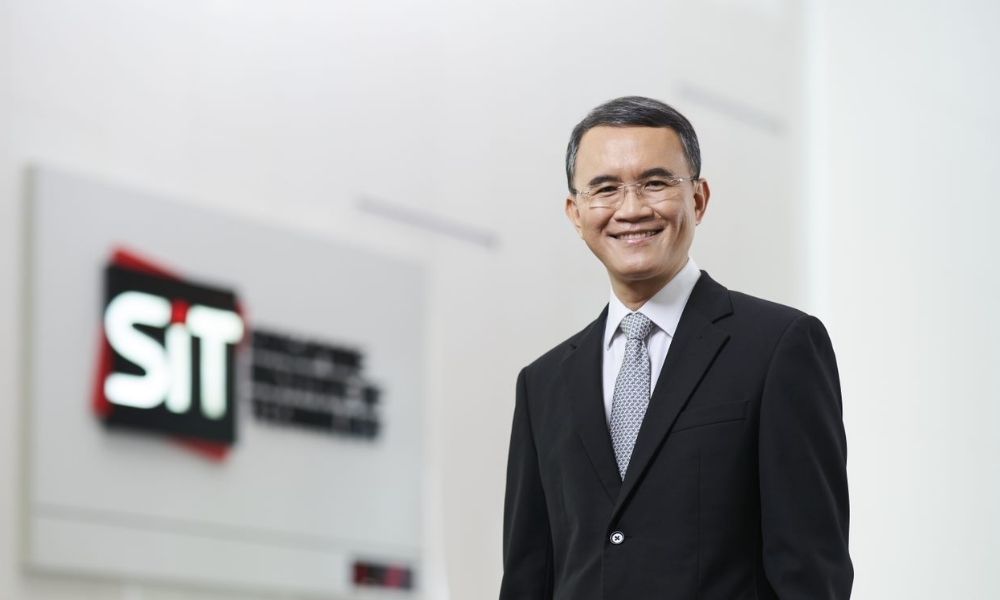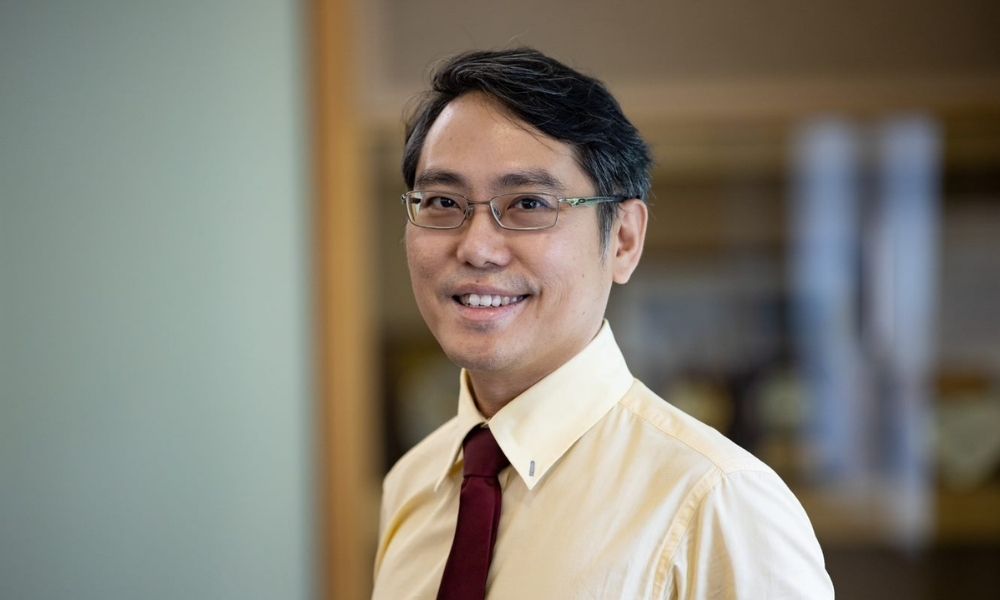A National Youth Council poll showed that regardless of age and schooling status, youths' self-reported preparedness for the future is modest at best. While they gave themselves higher scores in empathy and sensitivity, the respondents noted a decline in reported levels of work, social and cultural competencies.
“As students today are generally better resourced and supported both at home and in school, they are in a stronger position to decide what they wish to pursue, which can be varied and divergent based on their passion and aspirations,” said Pang Choon How, the current Principal of Hwa Chong Institution. “While conventional choices like medicine and law continue to draw students who aspire to contribute in these fields, it is also heartening to see students willing to venture into more divergent and sometimes less conventional pathways including the arts and culture, and social work.”
If you were one of those surveyed, would you say the same?
With LinkedIN emphasising that “leadership, listening, and conflict management are some of 2022’s most desirable skills” and Forbes highlighting “uniquely human skills that machines simply can’t – and possibly never will – possess… Skills such as creativity, human-to-human communication, emotional intelligence, and complex decision-making”, it’s no surprise that many may feel unprepared when comparing themselves to these standards.
This is where it is helpful to breakdown the list of buzzwords and examine them from three fronts: what they are, why they are important, and how a scholarship may help.

Professor John Thong, Deputy President (Academic) & Provost, SIT
Leadership
In any list of must-have skills, leadership is always somewhere near the top.
This refers to skills that organise groups and teams to achieve common goals. The plural is deliberate – leadership is not a single skill, but consists of an array of interrelated skills that build a cohesive team. That said, they can be placed under a single umbrella as one of the most desirable skills in an employee.
Leadership is also a uniquely human trait. As Bernard Marr, author of Future Skills: The 20 Skills and Competencies Everyone Needs to Succeed in a Digital World, said: “Some of the most in-demand skills of the workplace of the near future will revolve around tackling… high-level challenges. Leadership, human judgment, complex decision-making, collaboration and team-working, digital threat awareness, awareness of issues of ethics, culture, and diversity.”
“Understanding how to harness these human-centric skills will put you in a position to be able to work effectively alongside whatever technology comes along to disrupt your industry without having to worry that it is going to replace you.”
Scholars are some of these human leaders that every organisation or country needs. Professor John Thong, Deputy President (Academic) & Provost, SIT, emphasised how SIT invests substantially in its own scholarships to cultivate future leaders for Singapore’s growing industries. “The SIT Scholarship recognises students for their academic excellence, robust co-curricular record, and strong leadership qualities. We have a Scholar Engagement Programme that provides scholars with the opportunity to participate in specially curated activities, which allow them to sharpen transferable skills and help them achieve their maximum potential. Our aim is to develop our SIT Scholars into well-rounded individuals, who play their part to shape the student culture at SIT, contribute to the community, and be responsible global citizens.”
“The future of this world is yours to create – use your youth, energy, and passion to care for others and the environment.”
Adaptability
“As the saying goes, ‘adapt or die’,” said Professor Thong. “It is important to be able to adapt to the quick advancements in technology, and have the mental agility to absorb new knowledge and learn new skills to develop expertise in new areas.”
Mr Pang concurred: “Given the nature of the future being increasingly complex and uncertain, and the need to collaborate effectively with global counterparts, I believe three important soft skills for one to ACE in future are ‘A’ for Adaptability, ‘C’ for Cultural savviness, and ‘E’ for Emotional intelligence.”
He emphasised another facet of adaptability – to not be tied down to a narrow definition of success, but strive to be a well-rounded individual. “To me, having a sense of fulfilment and purpose in what one does, being adept in one’s craft and creating value to others through one’s endeavour constitute success. This should not be extrinsically motivated by external recognition or accolades.”
As we move towards a post-pandemic Singapore where many of the old rules have changed or been rendered irrelevant, you will need to be able to rely on your own ability to roll with the punches and surmount challenges rather than following the books.
On the surface, a scholarship may seem a poor choice to inculcate adaptability, with its emphasis on providing education and a stable career. In truth it is the opposite – scholars often rotate through many different departments and are constantly tasked with extracurricular activities, all of which are perfect for building one’s ability to adapt.

Pang Choon How, Principal of Hwa Chong Institution
Humility
To be adaptable, one must be humble.
“Technology is advancing at a fast pace and workplaces are rapidly evolving into volatile environments where ‘change is the only constant’. Hence, employees need to embrace humility in learning, that is, be open to new ideas and concepts, listen actively to people around, gather information broadly and prevent preconceived notions from constraining thoughts; in order to improve flexibility and adaptability,” explained Dr Ang Yuen Siang, National Science Scholar (PhD). (Read his story on Page 76.)
Time to put your empathy, sensitivity and multicultural knowledge to work! A good part of being humble is simply listening to feedback with an open mind and remaining constantly aware that others may have better ideas, more flexible solutions and alternative positions. Mr Pang is full of confidence in this arena, describing this generation as: “well-connected and informed”.
“They seek purpose in what they learn and do, focusing not just on academic performance but also wanting to make a difference to others and society at large through social causes and community projects. They need to be engaged and heard, but at the same time, be guided on strong fundamentals and values in their growing up years.”
Most scholarship programmes build on this natural affinity by providing a great relationship based on humility: a mentor or buddy. New scholars are paired with a practising or graduate scholar who helps guide their steps through school and their first placements. Both parties will only reap the benefits of learning if they are humble in their interactions with each other.
Professor Thong concurred: “Taken holistically, education is also about personal growth – developing a growth mindset, and personal qualities such as integrity, perseverance, hard work, resilience, compassion and so on.”
Communication
You might be adaptable and humble, but how to get that message across? This is where communication skills come into play.
On the simplest level, communication is the ability to pass, receive and process information. But anybody knows that those barely scratch the surface of effective communication. Are you clear and concise? Do you sound different depending on whether you wrote a text or left a message? How do you speak to friends, superiors, colleagues?
Scholars often emphasise the collaborative and communicative nature of their organisations in their interviews. This makes a powerful case for a scholarship as a place to better this skill, doesn’t it?
MND EDGE Scholar Nicholas Oh told us a heartening tale of how even though he began work on a WFH basis due to the pandemic, his colleagues actively reached out to make him feel at home. “Working from home definitely limited the pace of uptake when I first begun work, and made it difficult to build good working relationships. To be able to overcome these challenges, even as COVID-19 has also significantly increased the workload for many of us, was something I found heartening,” he said, going as far as to list it as his Number One Career Achievement so far. (His other achievements are detailed in his story on page 62.)


